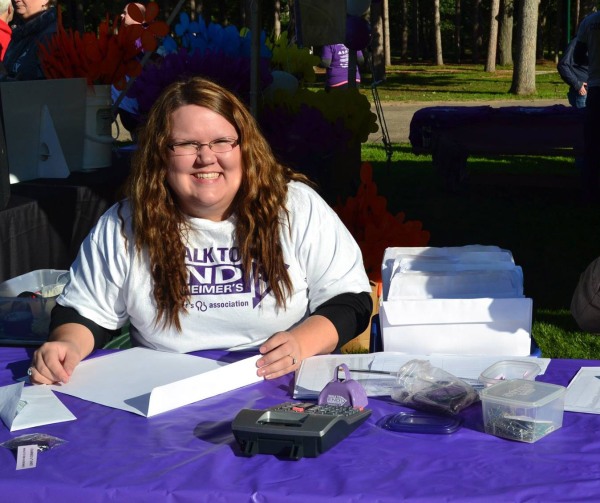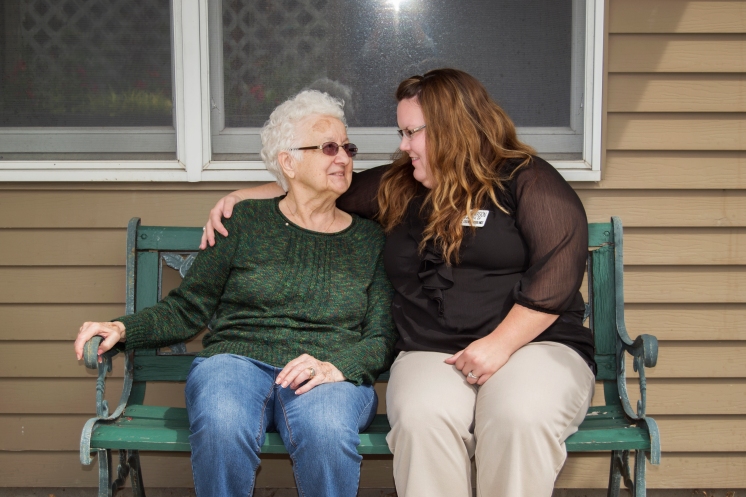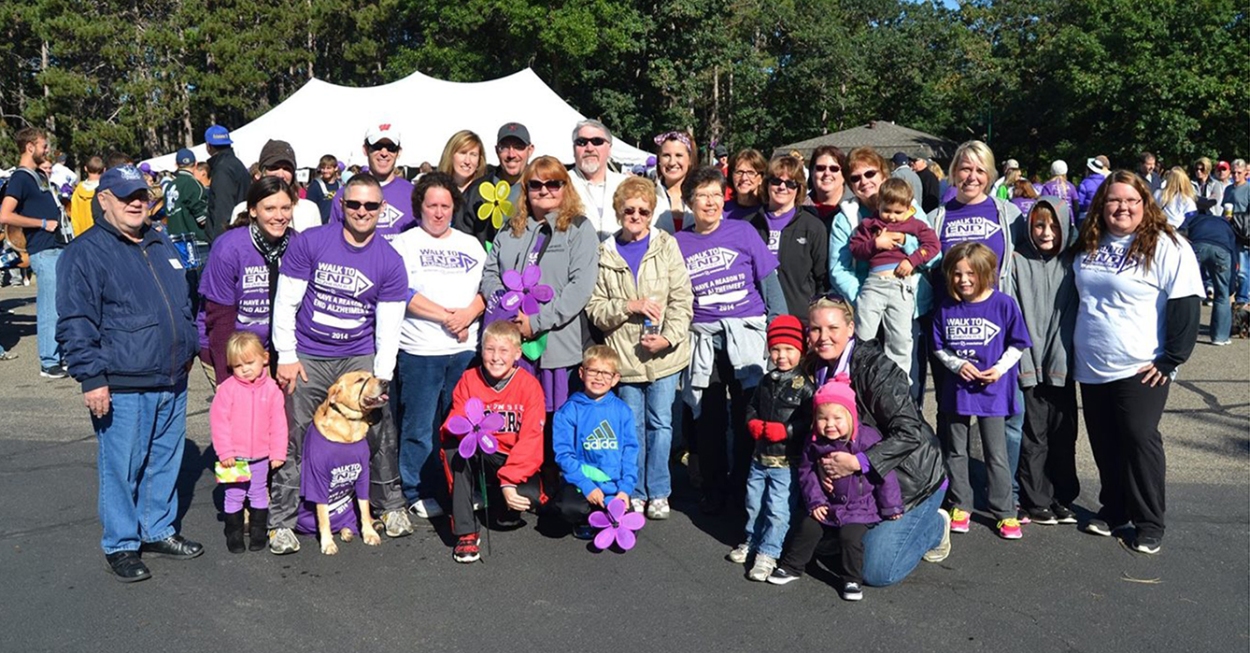Walk to End Alzheimer's Hits Close to Home at Grace Lutheran Communities
Posted 9/10/2015
According to the Alzheimer’s Association, someone in the United States develops Alzheimer’s disease every 67 seconds. Jamie Larson, director of Grace Edgewood and Grace Woodlands, wants to change that. She is on Eau Claire’s Walk to End Alzheimer’s planning committee, which raised more than $80,000 last year for Alzheimer’s awareness, education, and research. She said the cause has become important to her because she sees the disease touch people on a daily basis.
“It’s a family disease,” she said. “It’s not just that person that suffers. It’s their
extended family, their friends, their grandchildren, children. It’s everyone that really is challenged by the progressive downturn of their health, both physical and psychosocial.”
Larson sees individuals in all stages of dementia; from those who are bed-bound and in their last days of life to those who simply can’t remember which way their room is anymore. She said that she can see how frustrating it is for them to be in a building and not remember where the restroom is or how to get where they need to go.
“It’s challenging to see people like that, and their families, struggle with that.”
Grace Edgewood has traditional assisted living units and memory care units, while Grace Woodlands is a complete skilled memory care assisted

“We have silent alarms to make sure they aren’t annoying or agitating to that individual, said Larson, “but the staff can still make sure that if they are getting up to use the restroom in the middle of the night we can go and assist them
It takes a special team to work with people with Alzheimer’s disease and other dementias. Larson said her team focuses on meeting clients where they’re at.
“Their reality is our reality. If they think they are 15 years old and their mom’s coming home to cook them dinner, then that’s what’s going on. That’s what we do, that kind of therapeutic redirection is the big thing.”
When looking for someone to work with their clients who have Alzheimer’s, Larson said they have to make sure someone not only has the physical skill to provide personal cares, but also the personality and the desire to want to care for someone’s mental challenges before they are hired to work in this setting.
“The training is challenging. Those who’ve had family members or friends who’ve had the disease, I think they can attest to the fact that it’s a hard adjustment for people to get used to, and everyone has different triggers and different things that are important to know about that person to be able to care for them.”
There’s also more than having the patience and the training to be able to care for individuals with dementia. It’s having the heart. The aides have to be able to support not only that person but also their family members that come in and need some education. They help educate families on the front lines of why their loved one is acting this way.

"The journey, the disease, is really a family issue. You can teach someone how to provide the physical aspects of things, but if they don’t genuinely care for people, that’s not going to be a good fit for us, for that person and for their family.”
Larson believes that knowing what’s important to someone is a big part of making the transition from living at home to living at an assisted-living facility a smooth one. The staff at Grace strives for personalized care and wants to make things as home-like as they possibly can.
“Our number one goal is: This will never be
Larson said that talking about long-term care for a family member is different for everyone.
“Everyone wants to keep their loved one at home as long as possible, which is great, but I think it’s important to weigh the risks and benefits of doing that.”
Caregiver burnout is a big risk. Taking care of an individual with memory loss puts a different stress load on a family member than it does on those who are doing it in a professional setting and are trained to handle it.
“I tell people, ‘When you place your mother in an assisted living
Staff members from all Grace Lutheran Communities’ facilities participate in the Walk to End Alzheimer’s in Eau Claire. This year’s walk will be held Saturday, September 12th at Carson Park. Not only is the two-mile walk great exercise, getting involved and making a donation can help family members, friends, and all individuals suffering from Alzheimer’s disease. According to the Alzheimer’s Association, by 2050 up to 16 million Americans will have the disease. Larson wants everyone to know that the numbers are growing.
“This is becoming a bigger issue in our country, so it’s important to make sure that we are supporting the cause and supporting research to hopefully find a cure.”
To register for the Walk to End Alzheimer’s in Eau Claire, or to learn more, visit http://act.alz.org/site/TR?fr_id=7904&pg=entry.
Grace Lutheran Communities has been helping our friends and neighbors in communities all over the Chippewa Valley since 1960. The non-profit organization specializes in rehabilitation, assisted living, skilled nursing, memory care, child care, independent living, and adult day services.
